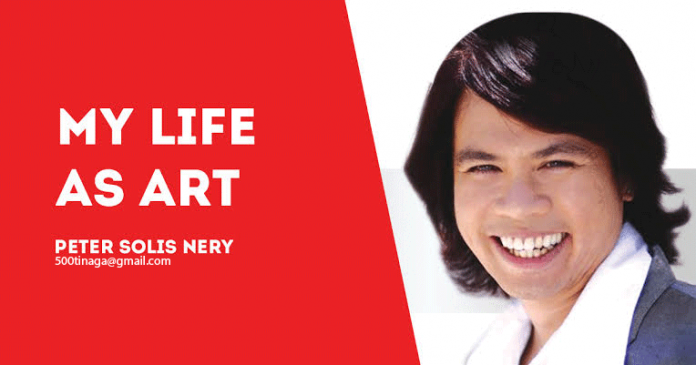
I LIKE responding to interviews by students.
Every year since I was inducted to the Palanca Awards Hall of Fame in 2012, without fail, I get many, many, many interviews from students all over the Philippines on my life as a writer.
Being asked about the writerly life is important to me because although our times and ways are different, I know that I’m sharing something that is personal and, in many ways, challenging.
***
Q: What are the advantages of being a professional writer?
ThePSN: If you are not writing for your own self-worth and preservation, I’m pretty sure that, as a professional writer, you will find some advantages in the things I’ve previously mentioned.
Namely, recognition and social status, preferential treatment and fame, and maybe even a bigger command price compared to lesser, non-professional writers.
***
I agree that we should not judge good writing based on who wrote it (professional writers versus non-professional), but on the quality of the text or the work itself.
But I’m not the only judge in this world.
The last time I checked, society still pays more attention to personalities rather than the actual creative output.
***
Q: What is the most difficult part of being a writer?
ThePSN: In this millennium, in this particular century, the most difficult part of being a writer is starting a career as a writer.
As I have said, these modern times are so focused on personalities, names, brands, images.
So once you have established yourself, it only gets easier.
***
Maintaining a standard or keeping your good status is easy.
Exceeding it is a little difficult.
But more difficult, and in this case—most difficult, is establishing that standard and good status to start with.
***
On one hand, I envy the new generation because they can just start promoting anything like putting their works out there as if by trial and error.
But on the other hand, I do not envy the stupid competition that they have to deal with.
I’ve seen young writers resorting to pornography just to get attention.
With that, I know that they have compromised.
***
These days, I can relax a little bit.
I’m still making sure that I turn out only great works of literature.
But I have already established my brand as “ThePSN of Philippine Literature.”
I even have my own distinct hashtag.
So I’m not so worried about competition.
I do not have any difficulty now as a writer.
Only joy.
And satisfaction.
***
Q: Do people need an academic degree to be a writer?
ThePSN: I’ll answer this in many ways.
***
Yes, if you can afford an academic degree (in writing or other fields), you need it to get employed somehow if your writing cannot support you.
Many of our notable Filipino writers are also teachers or university professors.
I was also a nurse before I decided to concentrate on writing.
And I am only able to pursue writing full time now because I have made a lot of savings when I was a nurse.
***
Yes, to be a good writer you need an academic degree.
Even if only for the fact that an academic degree means more years in college where you can practice or hone your talent in language communication under the tutelage of knowledgeable professors.
***
Yes, because the reality in the Philippines is that people look down on anyone who has no college education.
You can be very “inspired” with brilliant thoughts, but if you are only a high school graduate, how many lawyers and doctors do you think would be lining up to read you?
And only these lawyers and doctors have the money to buy your books!
***
But no, you do not need an academic degree to write.
Or even to write well.
I know a lot of people who are college dropouts, and still made a great career as writers.
But they’re probably one in every thousand.
Now, are you willing to take that chance?
***
So yes, an academic degree is always a great backup plan in writing.
If not truly a reliable Plan A for survival.
***
This is Part 3, and the conclusion, of my latest interview by a student./PN

